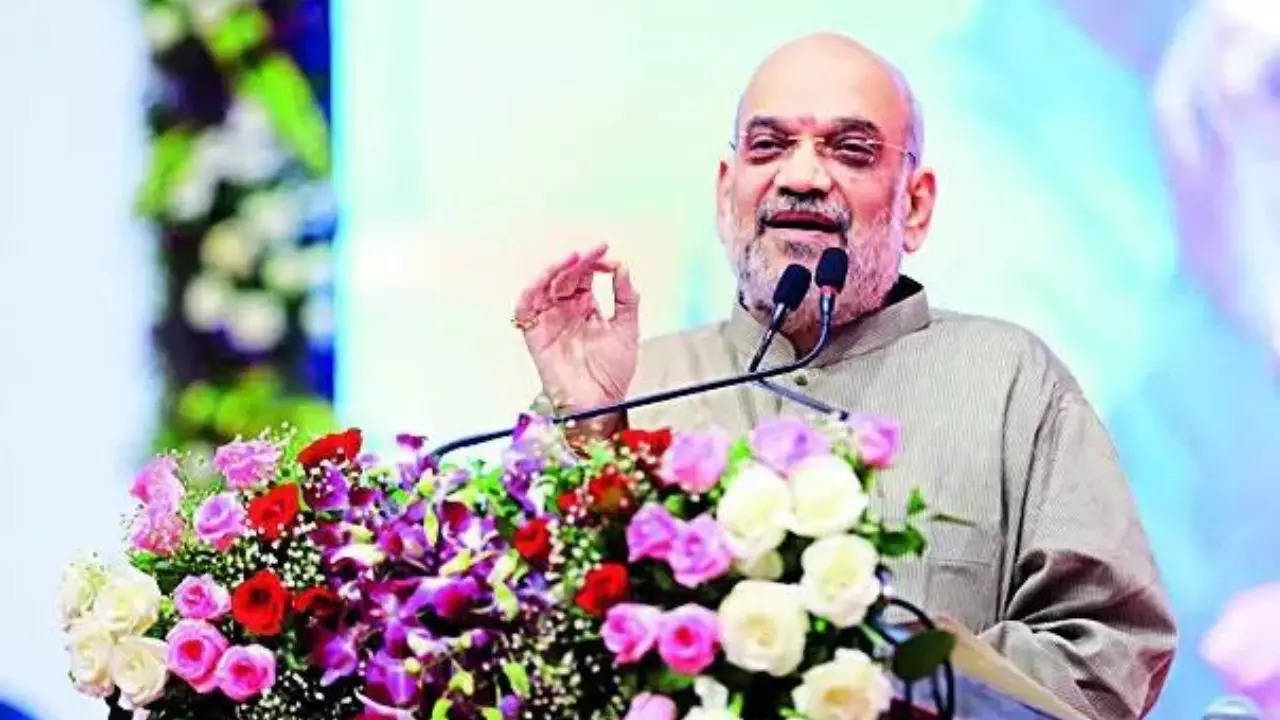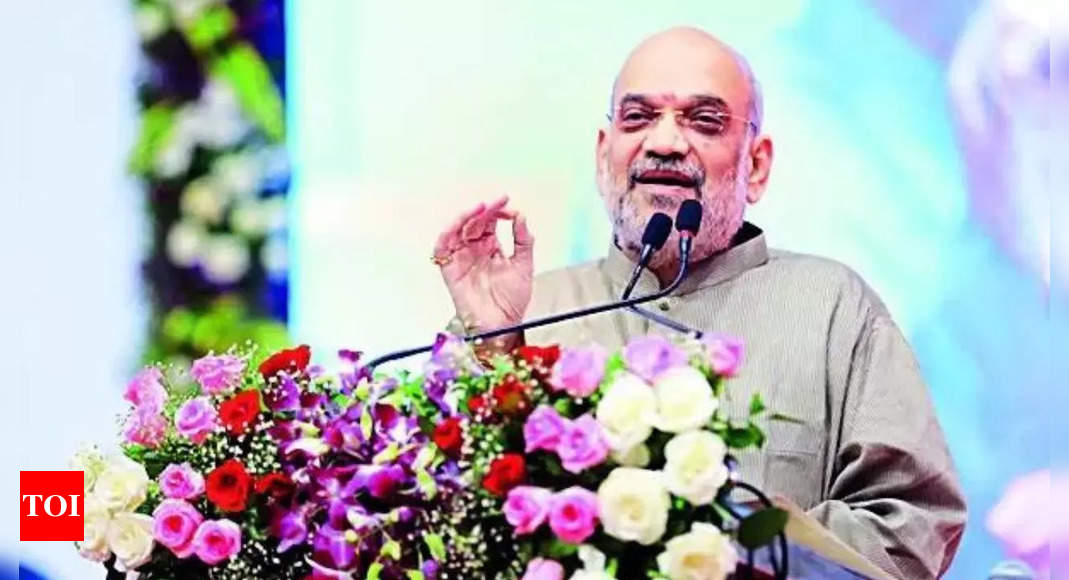
AHEMDABAD: Union home minister Amit Shah on Saturday said with the long-term policy of the Narendra Modi-led central government, India would not only become self-sufficient in active pharmaceutical ingredients (APIs) and key starting materials (KSMs) for the pharmaceutical sector but would also be exporting them in a matter of 10 years. Shah was speaking at the inauguration of some new buildings on the Gandhinagar campus of National Institute of Pharmaceutical Education and Research (NIPER)-Ahmedabad.
The event also had Union health and family welfare minister Mansukh Mandaiya and Gujarat chief minister Bhupendra Patel among others. The new buildings of the premier pharmaceutical institute, which is spread over an area of 60 acres, have been constructed at a cost of Rs 94 crore, said officials.
“To make India self-reliant in API and KSM, the Modi government has adopted a well-thought-out and long-term policy. To develop 16 APIs and two KSMs in a sustainable, cost-effective and affordable manner, a process has been started. And I believe that within a decade, we will be in a condition in which we will not only be self-reliant in API and KSM production but will also be exporting them,” said Shah.
He added that the seven NIPERs envisioned by the PM lay the foundation for making India self-reliant in pharmaceutical sector by integrating education with research and business. After Mohali and Guwahati, Ahmedabad is the third fully-functional NIPER, whereas the work is underway at Hazipur, Hyderabad, Kolkata and Rae Bareli campuses.
Mandaviya in his speech mentioned that one out of every five medicines in the world is made in India today. “But we are excelling in generic medicines. We may be sending medicines by container-loads, but not much work is done in developing drugs. Thus, the Modi government has laid out plans for investment of Rs 35,000 crore in the sector in four years to make India a research hub,” he said.
Mandaviya added that today about 70% of medical devices are imported by India. “To reduce dependency, we are developing NIPER-Ahmedabad as a centre of excellence for development and testing of medical devices,” said Mandaviya.
The event also had Union health and family welfare minister Mansukh Mandaiya and Gujarat chief minister Bhupendra Patel among others. The new buildings of the premier pharmaceutical institute, which is spread over an area of 60 acres, have been constructed at a cost of Rs 94 crore, said officials.
“To make India self-reliant in API and KSM, the Modi government has adopted a well-thought-out and long-term policy. To develop 16 APIs and two KSMs in a sustainable, cost-effective and affordable manner, a process has been started. And I believe that within a decade, we will be in a condition in which we will not only be self-reliant in API and KSM production but will also be exporting them,” said Shah.
He added that the seven NIPERs envisioned by the PM lay the foundation for making India self-reliant in pharmaceutical sector by integrating education with research and business. After Mohali and Guwahati, Ahmedabad is the third fully-functional NIPER, whereas the work is underway at Hazipur, Hyderabad, Kolkata and Rae Bareli campuses.
Mandaviya in his speech mentioned that one out of every five medicines in the world is made in India today. “But we are excelling in generic medicines. We may be sending medicines by container-loads, but not much work is done in developing drugs. Thus, the Modi government has laid out plans for investment of Rs 35,000 crore in the sector in four years to make India a research hub,” he said.
Mandaviya added that today about 70% of medical devices are imported by India. “To reduce dependency, we are developing NIPER-Ahmedabad as a centre of excellence for development and testing of medical devices,” said Mandaviya.
Source link

